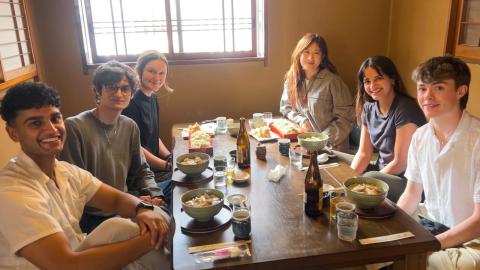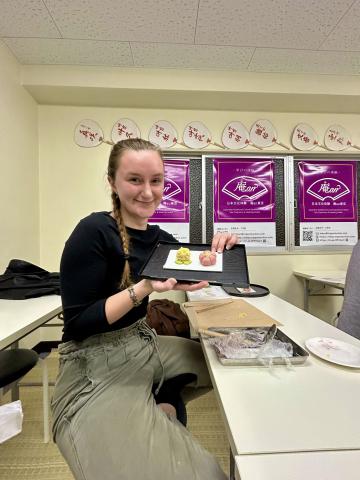
My time in Japan was a dream, with each day offering something new. In Tokyo, I explored ancient Buddhist temples and Shinto shrines that have stood for over a thousand years, enjoyed the lively atmosphere of annual sakura (cherry blossom) festivals during their peak season, and spent evenings wandering the vibrant, lit-up streets of Shibuya, Ginza and Shinjuku. During my two months in Tokyo, I had more time than the average traveler to engage in unique experiences like attending the Grand Sumo Tournament, where top competitors vie for national honors dating back to the year 712, and exploring lesser-known areas such as Chichibu, Yokohama, and Saitama. Potentially most memorable of all, I enjoyed authentic dishes such as sushi, Wagyu beef, soba noodles and onigiri, straight from the motherland. Living in Tokyo for two months opened doors to further travel exploration. In Japan, I rode the Shinkansen (bullet train) to culturally rich cities like Kyoto, Osaka and Kamakura. I visited Okinawa, renowned for its Hawaii-like beaches and distinct culture. And internationally, I traveled to South Korea, Thailand and Taiwan—three countries that had long been on my bucket list. Travel is a passion of mine, and visiting many cities and countries during my time in Japan was truly incredible.
Image
Of course, studying abroad in Japan also had its challenges, especially regarding overcoming change. Change is challenging, big or small. Coming to Japan was a really big change—a new culture, new food, new language, and new friends. I undoubtedly faced challenges, often described as "culture shock." However, I was prepared, armed with readings, videos, and conversations about these potential hurdles. So, when the change came, I was ready. What I wasn’t prepared for were the challenges I’d face after returning to the U.S. Familiar culture, familiar food, familiar language, and familiar friends—yet, somehow, it felt even harder. My time in Japan feels like a dream. It's crazy to think that just a few weeks ago, I was catching the Yamanote line or savoring a tempura bowl at a local izakaya. This feeling of surrealism is normal amongst travelers and students spending time abroad in another country, as travel offers new and intense experiences that vastly differ from normal activities back home. When we return from travel and find ourselves readjusting to life prior, this change in routine can make our time spent traveling feel disconnected from real life.
For me, my time abroad brought significant personal growth and new perspectives. So, returning home to the U.S. created a sense of dissonance, as I’ve changed, but my surroundings haven’t. To combat this feeling, I enjoy looking back at pictures, sharing snacks and souvenirs with family and friends, and reminiscing on stories. My time in Japan was transformative in many ways. I honed my ability to travel and live independently, gaining confidence as a solo female traveler and deepening my passion for adventure and culture. But I yearn for my next trip back to Japan, already missing the 7/11 fried chicken and endless frenzy of shopping at Don Quijote.
By Zoe Tomlinson, Diverse Ducks Ambassador
GlobalWorks Internship in Tokyo, Spring 2024
